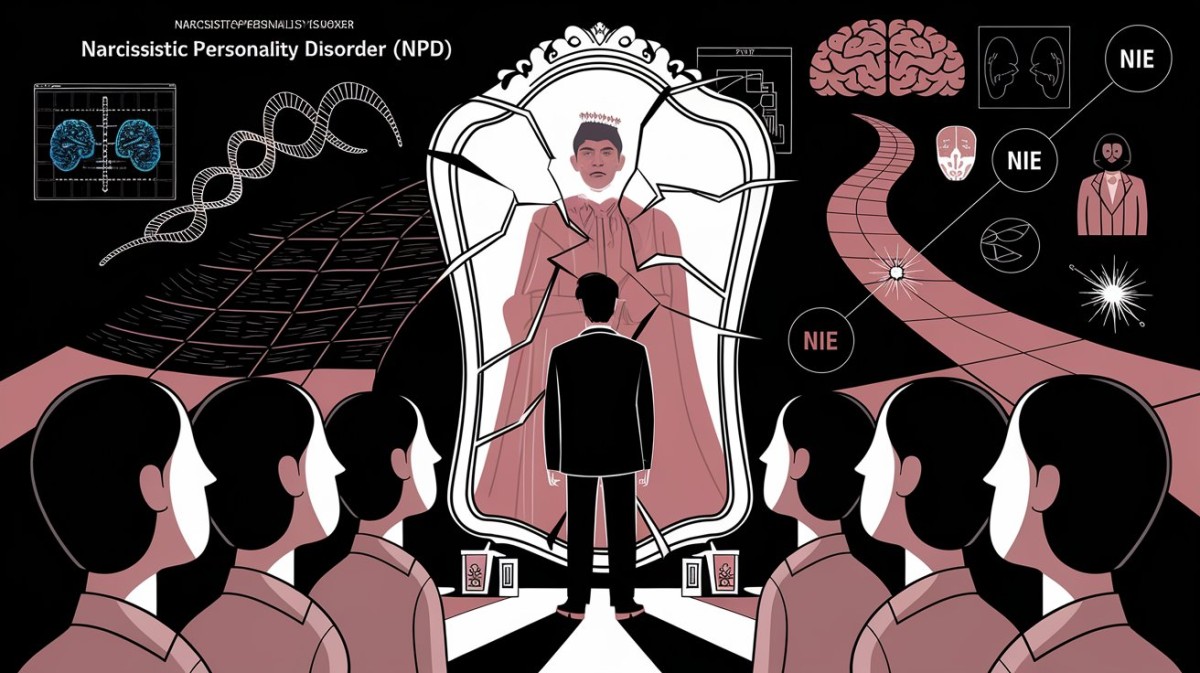The universe doesn't revolve around you!
It is a funny statement that is mostly used in the break of serious conversation but for a person diagnosed with Narcissistic Personality Disorder, this is something they wake up to every day and goes around causing havoc to their relations and mental health. That is the state that occurs when the love for oneself transcends and turns into an obsession or excessive preoccupation with self.
Where does admiration, if pushed and probed into constant dependency, lead? I
Understanding Narcissistic Personality Disorder

This blog defines Narcissistic Personality Disorder (NPD) as the tendency to have extreme self-importance, not just mere egoism or selfishness, but a mental disorder affecting one’s self-image and interpersonal relationships. Best known as NPD, or Narcissistic Personality Disorder, it is defined by grandiosity, the necessity for attention, and an inability to sympathize with others and its effects on one’s abilities to interact with people, both personally and professionally.
Causes and Risk Factors

The factors that lead to NPD are not fully known, however they are founded to stem from genealogical, environmental, as well as neurobiological causes.
1. Genetics:
Research has it that NPD might run in the family. Personality disorders or any other mental health problems may run in families and so people who have this in their genetic pool may be dangerous.
2. Environment:
These include Unfavourable parenting received during childhood, interpersonal rejection, lack of parental care and negative treatment during childhood. Too much attention, admiration or, conversely, completely ignoring the child may also have an effect on the child’s inability to understand others’ feelings.
3. Neurobiology:
Organizational culture might also play a role in the process leading to NPD since brain structure and function may impact one’s understanding of it. Problems with the parts of the brain that deals with handling of emotions and behaviors might be attributed to narcissism.
Symptoms and Diagnostic Criteria

NPD is characterized by a number of symptoms that shape an individual’s behavior and interaction with other people. Some common symptoms include:
1. Grandiosity: A person with grandiosity will have an inflated feeling of himself or herself to be superior to others despite lack of any objective reason for the same.
2. This includes undue obsession with grandiose or inflated ideas of achievement, capabilities, and/or attractiveness, or with a perfect and passionate affiliation or union.
3. Self-entitlement includes feeling unique and different from all the ordinary people and thus able to relate with or socialize with only special or high ranking people only.
4. Need for excessive admiration.
5. Sense of entitlement: Demands of special consideration and treatment and people’s high expectations that others should accord them the preferential treatment they seek or expect.
6. Exploitation of others: Using people to solve their various problems with out considering the feelings of the used individual.
7. Lack of empathy: Lack of ability in perceiving other people and their emotions and not wanting to share these emotions.
8. Jealous of others or thinking that others are jealous of him/her.
9. Condescending or proud actions or postures.
In diagnosis, the mental health professional will evaluate these traits and how they are disruptive to the life of the person in question. However, it will be important to state here that NPD traits are not absolute, and not every narcissistic behavior is a sign of a disorder.
The Impact of NPD on Relationships

The people with NPD have significant issues with interpersonal relationships. They do not hesitate to use their companions, friends and relatives and can turn into manipulators, who use emotional abuse as a weapon, which makes their partners, friends and family members unhappy and dissatisfied. When dealing with narcissistic personalities, it is not always fun as you get physically and emotionally drained and even your interactions can be destructive.
Another set of traits of pathological narcissists includes a problem of sort with the formation of close and meaningful interpersonal relationships. Their connections are strictly utilitarian, where one seeks something from the other such as admiration; status or a resource and the vice versa, without necessarily having to respect or love. In worse case can cause string of unsuccessful relationships plus a continued encouragement of the narcissist behavior.
Treatment and Management

The process of treatment in such cases can often prove to be complex since people suffering from NPD may not seek help or may indeed deny that they need help at all. Nevertheless, psychotherapy, and particularly CBT may be beneficial in the management of NPD, as well as improving people’s attitudes and behaviors. Therapy may focus on:
Improving empathy:
Making the individual accept that he or she has got to appreciate or at least acknowledge the feelings of other people.
Realistic goal setting:
Assisting them to develop suitable targets and meet these targets out of their potential and not dreams and fancy.
Challenging distorted thinking:
Removing self schemas and other schemas that are developed and fixed between the people and the world.
Medication may also be prescribed in case of depression, anxiety disorder or any comer ‘sidering conditions.
Self Management Strategies: Relatives and Friends

It is important that if you recognize that someone close to you has NPD then you need to set very firm disagreeable boundaries around this person for your own sanity. Here are some strategies:
Educate Yourself:
If you comprehend the concept of NPD, it will help you in dealing with the issues related to your relationship.
Set Boundaries:
In the given relationship, it is necessary to understand and identify which actions are allowed and which one are prohibited.
Seek Support:
Both partners may need therapy or support group as it helps one to have strategies to improving the relationship.
Encourage Treatment:
Even though this may not always be easy, it is helpful when encouraging your loved one to consult a professional.
For more such related conteny, check out our blogs on Mental Health!
Conclusion
Narcissistic Personality Disorder is a very hard to comprehend and deal with as it has a severe impact on the afflicted individual, as well as friends and family. The difference between normal self-love and confidence and NPD is that the patient with NPD augments these healthy qualities to the patient’s detriment and they become grossly impaired in their interactions with others and their self-concept. NPD awareness is a good starting point with which to begin a process of dealing with this personality disorder, whether it is in oneself or in a loved one. It is equally important for people with the condition to have the right support and treatment that would help them control the symptoms so as to get a better chance at having more meaningful and balanced relationships.

